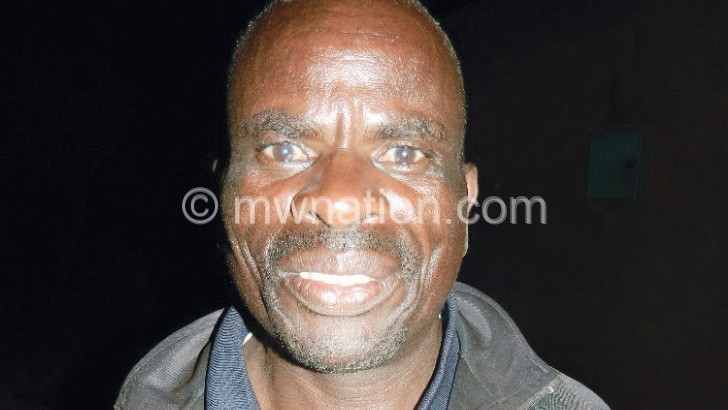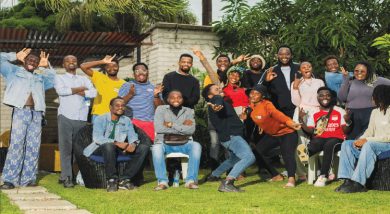Suppressing culture to sanitise funerals
Until recently, funeral rites in the area of Mlumuzana Kapopo Mhlanga in Mzimba involved a lot of drinking and joking, focused on comforting the bereaved and remembering the deceased with fondness.
People would drink calabashes of masese beer and ate meat. They would also dance vimbuza and/or ingoma—all in the name of celebrating the life of the departed one.
Those travelling from town would be encouraged to carry some beers to supplement the local ones. If they could not access “town or urban” beer, they would alternatively be advised to take with them a few notes for buying at home, including snacks for grave diggers.
And when Kingston January Mfuni of Msosoli Village succumbed to liver cancer last Wednesday, the family and the surrounding communities expected the same to happen.

After all, masese beer was in abundance at Anyankhata in Mateyo Zimba Village just a kilometre away from Msosoli Village. But something unimaginable happened.
When dawn broke, I took my distant brother aside to inquire where we could find the local brew. He took me to Anyankhata, but as we were about to make a step into the house serving as a beer hall, Mjifumbe Zimba came to us with a message from chiefs.
“You are instructed not to take any alcoholic drinks until the funeral ceremony is over,” Zimba cautioned us.
“Who said this? And when did you bring this by-law?” I inquired.
“Well, this is the message I have brought from the chiefs. In case you don’t know, since you live in town, chiefs recently formulated a by-law that prohibits consumption of alcohol while the funeral ceremony is in progress,” Zimba schools me.
“But please, allow me just sample the brew and pay for a 20-litre bucket, which we will take together after burying our departed brother,” I implore.
Grudgingly, he grants us permission and Anyankhata offers 2.5 litres of beer for us to taste.
“Kaphya makora chomene. Kachimera kalimo. Tipeni ndowa yimoza. [Good brew. There are adequate ingredients in it. Give us one bucket full of beer,”] I praise and order at the same time.
Upon return to the village, I engage a few village heads (VHs) in a discussion. I want to know why they decided to come up with this strange by-law.
Newly-installed Village Head Loti Chisambi tells me that it had come to their attention that many people were misbehaving and disrespecting the funeral rites after having one too many.
“While you are right that drinking beer and eating meat have been part of our funeral rites, we noted that some people took advantage of the binge to settle personal scores with their adversaries over personal issues,” he explains.
Mlumuzana Kapopo Mhlanga adds that the dead are supposed to be treated with fear and veneration, and funeral rituals are a way of demonstrating your respect.
This does not convince me. I wonder whether the by-law is in reaction to what Livingstonia Synod cleric, Reverend Bannet Zimba, preached on August 2 2013. He shook a hornets’ nest when he denounced mourners’ preference for beer to the word of God.
“Mwakhala kutali na ine chifukwa mkumanya kuti nindize na velemuti ya kachasu. [You’re sitting far away from me because you know I haven’t brought a bottle of kachasu]. If I had brought a bottle of kachasu here, you could have, certainly, moved closer to partake of the liquor,” said Zimba.
But his assertion did not please some people who reacted angrily and advised him to change the topic of his homily. The aggrieved members further threatened to leave the graveyard if Zimba did not heed their advice.
“Sangani chinyakhe chakuti mupharazge; mowa cha! Pala mlutizgenge kuphalazga vya phere, timlekeninge kwene kuno sono nthe! [Find something to preach on not beer! If you don’t change the topic, we’ll leave you even before finalising the funeral ceremony],” they warned then.
But this did not shake the man of God who shot back at the protesters by rebuking them with relevant biblical verses.
The protesters, too, did not want to be outdone. Just like the Pharisees did to trap Jesus Christ, they also set a plan to prove the pastor was equally wanting in the eyes of God.
And after reminding them of this episode, I inquire from Mlumuzana Kapopo Mhlanga: “Should I say you have finally accepted to live by the sermon of that man of God.”
“No, I don’t think so. It’s only that we noted there was moral decay. We’ll restore our culture once things have improved. Trust me,” he emphasises. n





